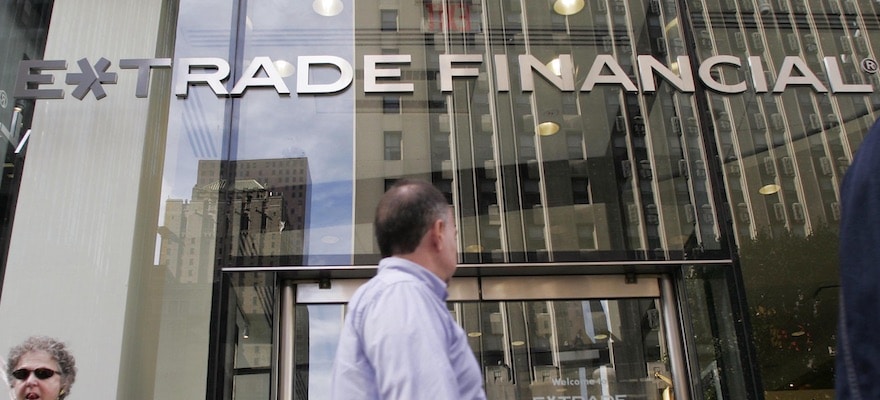E*Trade has announced that it will be facilitating trading of Bitcoin futures through CBOE Global Markets. The Online Trading brokerage is opening its doors to the world of Cryptocurrencies , after the debut of Bitcoin futures on the Chicago Board Options Exchange on December 10.
After a successful launch on the CBOE, the Chicago Mercantile Exchange (CME) also implemented Bitcoin futures on December 17, thus validating a public acceptance of the digital currency by well recognized and respected financial institutions. It is a distinct possibility that the introduction of Bitcoin on such a large exchange could drive public interest even further.
While some prospective investors have been wary of placing their funds at risk of such a volatile asset, it remains to be seen if the CME’s recent Bitcoin futures launch will help to alleviate some of these concerns. Additionally, the CBOE and CME have a reach with investors that far exceeds existing channels within the world of cryptocurrencies. Therefore, it is also possible that this move could spark more awareness around Bitcoin, leading to increased demand, which could push prices up even further.
E*Trade Follows Suit
E*Trade is following in the footsteps of some of its competitors, who have already made similar announcements. Earlier this week, TD Ameritrade Holding Corp said that it will offer Bitcoin futures, as demand for the digital currency continues to rise. Bitcoin’s price at the time of TD Ameritrade’s announcement had exceeded $20,000.
Interactive Brokers Enables Short Positions
Meanwhile, Interactive Brokers Group Inc. has taken matters even further. In addition to implementing trading of Bitcoin futures on CBOE, the company has also enabled short trading of Bitcoin futures, thereby creating a more dynamic trading environment.
Due to generally bullish demand for the cryptocurrency, the company has issued margin requirements of $40,000 per contract, in an effort to protect itself from the generally rapidly appreciating asset. The margin requirements for placing a short order are five times the amount required for executing a long position.


















